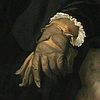Take a photo of a barcode or cover
challenging
reflective
slow-paced
Loveable characters:
No
Flaws of characters a main focus:
Complicated
It's one of these books you dont really enjoy reading but you are so glad you read it after you finish.
Would've been a 5 star if I didnt take into account the actual reading expiriance..
Would've been a 5 star if I didnt take into account the actual reading expiriance..
dark
Plot or Character Driven:
Plot
Strong character development:
No
Loveable characters:
No
Diverse cast of characters:
No
Flaws of characters a main focus:
Yes
Por fin lo terminé. Bored to death.
I must admit I don't quite know how to rate this book. 2.5 seems so little but then again that's perhaps the maximum score for a book so hopelessly unfinished?
I have heard this book touted as everything that is wrong with capitalism/socialism/courts/modern justice however, I found it to be lacklustre with few redeeming features.
The main character is hopelessly misogynistic, dull witted, and self-centred. K. doesn't even care why he was arrested and so insists on pestering literally every person he thinks might be able to help him. These people he encounters are perhaps even more infuriating than K. himself as they are inaccessible, aloof, and totally one-dimensional; Ms. Burstner, Mr. Lawyer, Leni, I'm looking at you.
Moving away from the characters, the setting is also decidedly unusual. Perhaps this is something lost to the passage of time, as kangaroo courts may have taken place in attics of tenements for all I know. However it seemed to me to almost take place in a dreamscape as everything is dark most of the time. Sure it's symbolism of how shady this whole trial is and how dim our insight is into the working of a court of this kind. Whatever kind this may be.
Obviously the book was unfinished and we cannot know if Kafka intended to publish it in this form, one can only hope not. The novel read as a very unfinished and theoretical reflection of a bitter person. Therefore I would not recommend it to anyone, even my worst enemies or the most pretentious among you. Sure, buy the book and Instagram it next to your granola and drip coffee breakfast, but spare yourself the hassle and don't crack the spine.
I have heard this book touted as everything that is wrong with capitalism/socialism/courts/modern justice however, I found it to be lacklustre with few redeeming features.
The main character is hopelessly misogynistic, dull witted, and self-centred. K. doesn't even care why he was arrested and so insists on pestering literally every person he thinks might be able to help him. These people he encounters are perhaps even more infuriating than K. himself as they are inaccessible, aloof, and totally one-dimensional; Ms. Burstner, Mr. Lawyer, Leni, I'm looking at you.
Moving away from the characters, the setting is also decidedly unusual. Perhaps this is something lost to the passage of time, as kangaroo courts may have taken place in attics of tenements for all I know. However it seemed to me to almost take place in a dreamscape as everything is dark most of the time. Sure it's symbolism of how shady this whole trial is and how dim our insight is into the working of a court of this kind. Whatever kind this may be.
Obviously the book was unfinished and we cannot know if Kafka intended to publish it in this form, one can only hope not. The novel read as a very unfinished and theoretical reflection of a bitter person. Therefore I would not recommend it to anyone, even my worst enemies or the most pretentious among you. Sure, buy the book and Instagram it next to your granola and drip coffee breakfast, but spare yourself the hassle and don't crack the spine.
reflective
slow-paced
Plot or Character Driven:
A mix
Strong character development:
No
Loveable characters:
No
Diverse cast of characters:
No
Flaws of characters a main focus:
Complicated
Super good :)
Lots of essay-ideas in it, as well as a very interesting read.
Lots of essay-ideas in it, as well as a very interesting read.
challenging
dark
mysterious
tense
medium-paced
Plot or Character Driven:
A mix
Strong character development:
No
Loveable characters:
No
Diverse cast of characters:
No
Flaws of characters a main focus:
Yes
non c'è dubbio che kafka sia pessimista. Si era capito dalla Metamorfosi e viene ribadito in questo racconto. Un uomo accusato di qualcosa (non si sa cosa e mai si saprà) si trova in balia dello stato, della legge, senza realmente capire come ci sia arrivato e con chi debba avere a che fare. E' un libro che fa riflettere, ma allo stesso tempo l'ho trovato molto incompleto. Come se non tutti gli aspetti fossero stati trattati. Anzi mi dava l'impressione di passare da una parte all'altra senza un metodo. Non so se questo fosse l'intento di Kafka. Di certo è un'altra sua opera apprezzata.
mysterious
reflective
slow-paced
Wonderfully absurd, unfinished and still better than Nabokov's Bend Sinister, which is similarly dark and absurd with very similar themes. I can't give 5 stars because it's incomplete, there are plot holes due to unfinished chapters, and it's basically reading a draft. I really do wish we could have seen how Kafka would have pulled it all together in a final draft, because what is there is solid.
Un mattino Josef K. si sveglia e scopre di essere in arresto. Questa accusa ignota che all’inizio lo blocca in casa non si traduce in una vera e propria prigionia, gli dà invece modo di scoprire che dietro la vita che ha sempre conosciuto si nasconde un mondo invisibile, un tribunale in un solario, reti di conoscenze in cui la sua situazione apparentemente tanto inspiegabile è in realtà di dominio pubblico.
Il processo potrebbe continuare per sempre, l’ordine dei capitoli a eccezione dell’ultimo non è molto importante perché sono slegati e contraddittori, ma soprattutto alla fine sembrano tutti frutto di un sogno (pensa alla stanza del pittore collegata al tribunale) con le eventuali interpretazioni psicanalitiche del caso (le guardie nude picchiate con una verga in uno sgabuzzino).
Non ci sono punti fermi, ogni incontro alimenta confusione, paranoia e angoscia. Dall’incomprensibile labirinto burocratico non se ne esce con una risposta, ma con la rassegnazione che la sentenza era già stata annunciata e che non c’è via di scampo.
Il processo potrebbe continuare per sempre, l’ordine dei capitoli a eccezione dell’ultimo non è molto importante perché sono slegati e contraddittori, ma soprattutto alla fine sembrano tutti frutto di un sogno (pensa alla stanza del pittore collegata al tribunale) con le eventuali interpretazioni psicanalitiche del caso (le guardie nude picchiate con una verga in uno sgabuzzino).
Non ci sono punti fermi, ogni incontro alimenta confusione, paranoia e angoscia. Dall’incomprensibile labirinto burocratico non se ne esce con una risposta, ma con la rassegnazione che la sentenza era già stata annunciata e che non c’è via di scampo.
«Di solito non si frequentano,» disse il commerciante, «sarebbe impossibile, sono tanti. Ci sono anche pochi interessi in comune. Se a volte in un gruppo comincia ad affiorare un interesse comune, presto ci si accorge che è un errore. Contro il tribunale non si ottiene nulla in comune. Ogni caso viene esaminato a sé, è certo il tribunale più scrupoloso. In comune non si può dunque ottenere nulla, solo il singolo arriva talora a qualcosa, in segreto; solo dopo che c’è arrivato gli altri lo vengono a sapere; nessuno sa come è successo. Non esiste dunque nessuna comunanza, ci si riunisce, sì, qua e là nelle sale d’aspetto, ma lì si discute poco. Le superstizioni esistono già da un pezzo e si moltiplicano per così dire da sole.»




